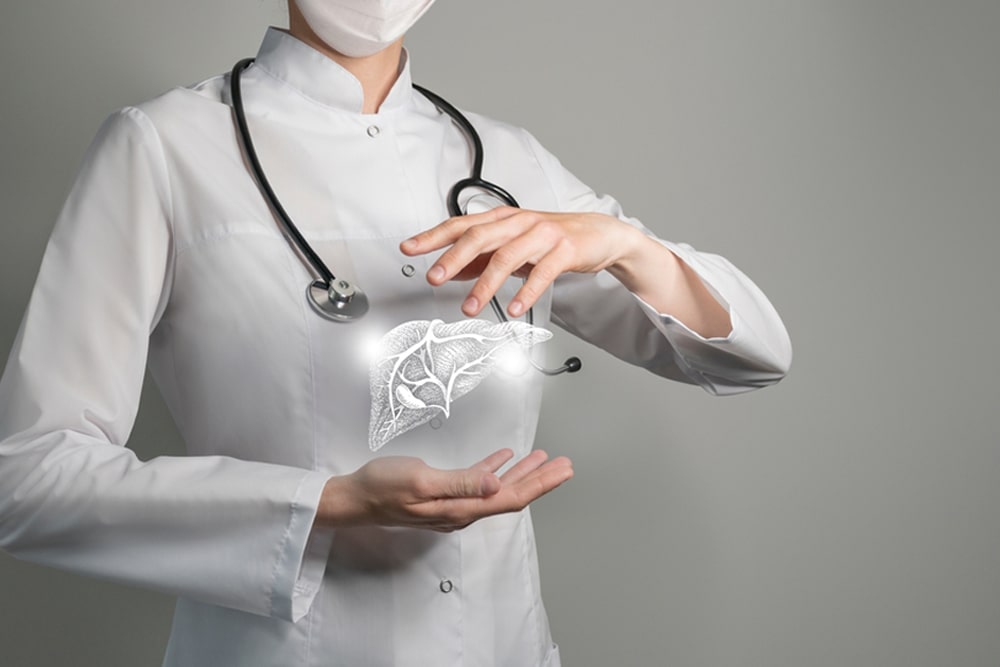
Liver is a big part in digestion. It assists in the digestion of food, it absorbs the nutrients and eliminates toxins. A good liver implies better digestion. Digestion may also be impaired in case your liver is weak. This guide is clear and easy to read, exposing this connection.
The liver aids digestion in four aspects:
In case of weak liver, there might be some digestion problems:
Fatty foods can lead to gas and bloating due to lack of sufficient bile. After dinner you can be uncomfortable.
Weak liver may result in constipation or diarrhea. The bowel changes frequently without an apparent cause.
Some of the food chemicals may not be removed by your liver. You can respond to food that you tolerated.
When the liver is not able to release some of the stored nutrients, then you might become tired. Due to poor digestion, your body is low in energy.
A liver that is stressed makes you feel ill or it makes you eat less.
These issues are able to destroy your day to day life. They often happen together.
Be on the watch of these signs in the event of imagining a weakness in your liver or your digestion:
Such symptoms may indication that your liver is not functioning. And in case of more than one, consult the doctor.
The following are some of the liver complications that can easily hit digestion:
Fat builds up in the liver. This inflammation has the ability to prevent the liver to produce bile. It can also disrupt digestion and bring about digestive discomfort.
Hepatitis is inflammation of the liver, which is brought about by viruses or toxins. It compromises the bile production and digestion. This tends to cause nausea, lack of appetite and indigestion.
Cirrhosis refers to the scar replacing the normal liver tissue. This highly restricts liver activities such as the production of bile and detoxification. Consequently, there is still the problem of digestive problems and aggravation.
In case of the persistence of liver or digestion issues, doctors can employ:
These examinations are used to determine whether your liver is causing your digestion problem.
The following are the ways of supporting your liver and digestive system:
Emphasize on fruits, vegetables, whole grains, and low-caliber proteins. Eat less processed, sweet food, and fried food.
Water aids the purging of your liver getting rid of toxins and aids in digestion. Drink 8-10 cups per day.
Alcohol stresses your liver. Light alcohol consumption or complete abstinence aids in healing your liver. This also aids digestion.
Even a small weight loss causes a decrease on your liver. This has the potential of reversing the damage to the liver at early stages. It also helps digestion.
Have a target of 30 minutes of physical activity such as walking or yoga. Exercise enhances the circulation as well as digestion.
Wear rubber gloves during the use of solvents or cleaners. Do not breathe in fumes of chemicals.
Take medications that affect the liver in accordance. Do not go on a spurt in using painkillers and other medications without consulting the doctor.
Store nuts, grains and spices in airtight containers. This is in order to avoid mold that may be detrimental to your liver.
These are safe products that we can recommend to help your liver and digestion:
In case liver or digestion issues do not disappear, the doctors can resort to:
Never take supplements without consulting your doctor particularly when taking other medication.
Consult a doctor if you have:
Early diagnosis is key. Early management of liver problems can bring about avoiding of digestive problems in the long run.
When a liver is healthy it will digest well, maintain energy and absorption of nutrients. The liver:
As the liver is put to the test, so is digestion. But a few changes can help. Consume raw and green food, drink water, exercise, moderate on alcohol and store foods. Enhance natural supplements such as milk thistle or probiotics under the advice of a physician.
In case of persistence of the symptoms, do not wait see a doctor. Preservation of your liver is one of the best ways to ensure that the digestion and your health is good in future.
The liver secretes bile that aids in digesting fats and the absorption of fat soluble vitamins. It also digests the nutrients which are taken up in the intestines.
The bile is a liquid secreted by the liver and accumulated in the gallbladder. It helps in digestion because it emulsifies fats to make them easier to digest and absorb.
Yes. In cases where the liver is not performing its duty, it may cause bloating, nausea, poor digestion of fats and bowel movements.
Fatty liver may disrupt the production and flow of the bile resulting in poor digestion of fats, post meal discomfort, and deficiency of nutrients.
The enlarged liver or amassing of fluid in the abdomen (ascites) is likely to destroy the size of the stomach, which causes premature satiety and loss of appetite.
Yes. Hepatic dysfunction could disrupt gut microbial balance, making it more inflammatory and digesting and the health of the gut as a whole.
The most frequent one is bloating, constipation, diarrhea, indigestion, pale stools, and dark urine.
Yes. The absorption of vitamins A, D, E and K, which are essential to the immunity, bone strength and blood coagulation, is impaired by the lack of the bile.
Have healthy dietary practices consisting of fibers, healthy fats and antioxidants. Limit the amount of alcohol intake, keep hydrated and have a normal weight.
In case of sudden bloating without any known cause, fatigue, yellowish color of the skin or alterations in the stool or urine, see your medical practitioner.